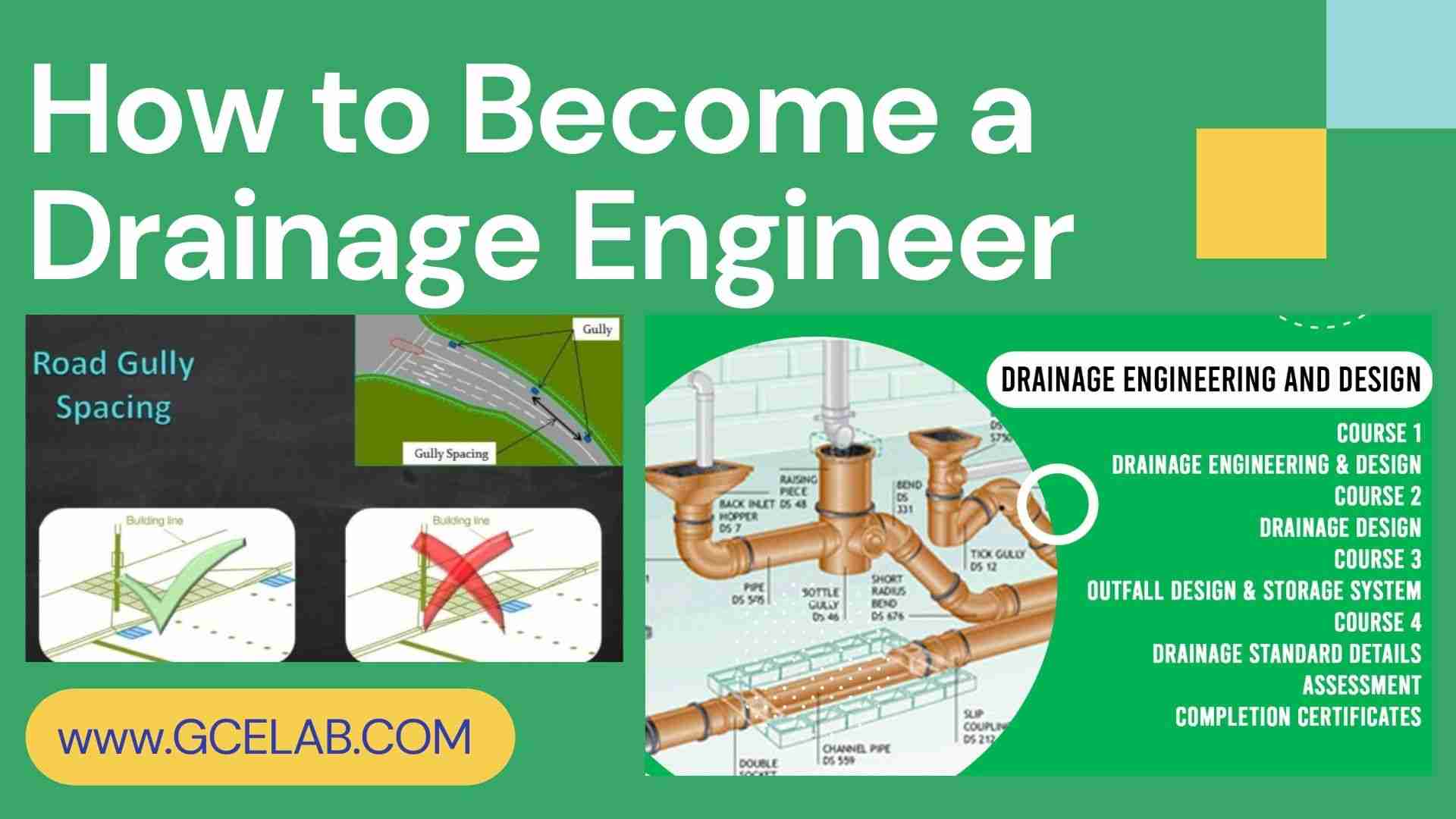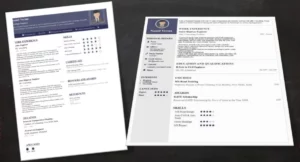How to become a successful Drainage Engineer – 5 Key Points
- By
- Pooja |
- July 23, 2020 |
- Civil Engineering, Drainage Engineering, Interview Tips,

Table of Contents
MS Excel based Templates for Gully spacing design, Attenuation size design, etc
Professional Training, Qualification and Titles
What is the Average Salary of a Drainage Engineer?
Potential Employers of Drainage Engineer
It’s not a very known discipline within the newbie civil engineering community but trust me Drainage Engineering is one of the most demanding sectors. So, how to become a successful Drainage Engineer?
That’s why we are here for you.
Please read this blog for details.
What is Drainage Engineering?
Drainage Engineering is a vital discipline to provide an efficient drainage system for any Infrastructure Project. In Road Projects, Drainage Systems are recognised as Sub-surface Systems and are designed to eliminate surface water from the road which would otherwise lead to overflowing if not managed satisfactorily.
Educational Requirement
Drainage Engineer’s jobs are highly focused on skilled jobs. The minimum educational requirement is a bachelor’s degree in Civil Engineering, but you need to have additional training in drainage engineering software’s and the design process.
Windes Micro-Drainage
Micro-Drainage is the most widely used drainage design software. It sizes drainage networks and includes flow controls, infiltration systems and attenuation structures in a single hydraulic model. Micro-Drainage ensures drainage systems are safe, sustainable, and meet environmental regulations.
MS Excel based Templates for Gully spacing design, Attenuation size design, etc
Many designer and consulting firms have developed their own customised MS Excel-based templates to calculate surface water gully spacing tools, Surface Water career pipe design tools, foul sewer design tools, attenuation pond sizing tools, etc. The gcelab.com also developed their customised XL templates and shares them with their students upon request.
Best Design Practices:
Having sound knowledge of the above design tools will certainly help you to get a drainage engineer job. But there is no shortcut to experience. You need to spend many years to become a successful drainage engineer or drainage designer and understand the best drainage design practices.
However, gcelab.com surely makes things a bit easier for you by providing online courses on drainage design and various other civil engineering subjects. Their courses are developed with extensive research on civil engineering industry requirements.
Also, their YouTube channel provides numerous free online courses and talks of several civil engineering experts. These talks would help you learn lessons from their professional journeys, hardships, and achievements.
Drainage Design Guides:
UK DMRB Volme-4, Part-3, HD 33/16
The document gives requirements on the selection of the types of surface and sub-surface drainage for the UK motorway and all-purpose road network. It describes the various alternative solutions that are available to drain the UK motorway and all-purpose road network, including their potential to control pollution and flooding. Some alternative solutions as below:
- Infiltration to the ground
- Discharge to a surface watercourse
- Discharge to surface water sewer
Innovations:
Sustainable Drainage System (SUDS)
Sustainable drainage systems provide a system where surface water flows through a controlled process and removes pollutants. It includes the following stages:
- It decreases the volume of water entering the drainage network or river and reuses it for irrigation or for storage and minimises evapotranspiration by green roofs or floated or cantilever solar panels.
- Vegetated swales (ditches) or filter trenches are used to remove pollutants from surface water prior to discharge to watercourses or aquifers.
- Attenuation or retention systems are provided to control the discharge of surface water by providing storage ponds, retention basins and wetlands.
- Infiltration systems, such as infiltration trenches and soakaways are used to permit water to infiltrate into the ground
Self-cleansing Gully and Manholes
Innovative products like self-cleansing gullies, manholes or smart gully adaptors are used to minimise the maintenance work of local councils.
Kerb Drains
If the longitudinal gradient of the Road is very Flat (< 0.5%), Gully & Pipe design will not provide adequate drainage solutions. Kerb drainage is one of the most viable solutions if the longitudinal gradient of the Road is very Flat (< 0.5%).
Permeable Pavement Treatments
A permeable pavement treatment provides an effective solution to mitigate the increase in impermeable surfaces related to new developments and urbanisation. Permeable asphalt can be integrated into drainage systems or be utilised as a complete system to help create a Sustainable Drainage System (SuDS). Some of the benefits of permeable asphalt are:
- Reduction of surface run-off
- Reduction of the heat island effect
- Maintenance of water quality
- Reduction in material quantities
Professional Training, Qualification and Titles
Professional training, qualification and titles play a very important role within the Civil Engineering Industry. Well-respected professional institutions like ICE UK, CIHT UK, Engineers Ireland, IEI, India, NCPE USA, etc are internationally recognised institutions and membership in these esteemed organisation play an extremely important role in the career progression.
These days online training and certification are also gaining a lot of drive and the industry admires these online training programmes. The gcelab.com or similar training firms offer professional training to their corporate client and to individual professionals. These training courses would surely make you fully ready to face a job interview. Online training comes with various benefits.
It’s convenient if you have a smartphone to watch courses online, it's generally way more reasonable than classroom-based courses and it's 24X7 to watch and repeat it whenever you want to see it.
What is the Average Salary of a Drainage Engineer?
The average salary for an entry-level Drainage Engineer job in the USA is around $67,000. Though it fluctuates from big metropolises to small cities, skill levels, experience, etc. It's a very demanding and exciting role with a decent salary package, so we would highly recommend to our newbie civil engineers to make a career as a drainage engineers.
Potential Employers of Drainage Engineer
Drainage Engineers typically work in an office environment with a limited requirement of site visits to understand existing drainage site conditions, etc. Drainage Engineering consulting firms, Drainage design software development firms, CCTV drainage network survey firms, drainage product (manholes, Gullies, Kerb drains) development firms, Construction firms, Government organisations, etc are potential employers of Drainage Engineers.
Key Takeaways
Drainage Engineering and Drainage Design is a critical skill, so it is in huge demand and going to increase further as we move towards 3D or 4D design modelling. It’s a complex task and challenging sector but same time a very rewarding and high-end job. Sustainable drainage is the future as the world is looking for eco-friendly design solutions.
If you are a fresh talent in civil engineering, you need to watch this space closely and grab the opportunity to become a drainage engineer.
Admin, gcelab.com
Please see our Pillar Post to know why we founded gcelab.com.
Read More:
- How to become a successful Highway Engineer – 6 Key Points
-
20 Interview Questions and Important Tips for fresh Civil Engineer Job

Pooja
Founder at gcelab.com, Pooja is an Entrepreneur unlocking human potential. Working in the Principles of Lean Start-up, Pooja believes in Transparency and User Happiness the most. Pooja’s background in teaching gives her a sophisticated grasp on even the most tedious aspect of course building. She is passionate about people who believe that good is not enough.


